Lamborghini Revuelto: Aventador heir is a 1000-hp V-12 plug-in
There’s a new king on Lamborghini hill. Called Revuelto, this successor to the long-running Aventador marks the first step in an ongoing, far-reaching engineering revolution in Sant’Agata Bolognese. Though the Revuelto will play into the broader electrification campaign taking place at Volkswagen Group, a naturally aspirated V-12 will ensure the supercar does not stray too far from Lamborghini heritage.
“Plug-in hybrid” is not the sexiest phrase, but skeptics may consider the setup a necessary evil in the industry’s current climate. New legislation to limit tailpipe emissions, largely in downtown European cities, threatens to escort the internal combustion engine off-stage. Pure electric operation in these environments is non-negotiable, and carmakers from all over the spectrum are going further by giving engine downsizing and forced induction two thumbs up. Lamborghini is instead returning fire with something of a middle finger; not only does the naturally aspirated V-12 survive, it’s all-new.
“The engine block’s casting is different. The cylinder heads are different as well,” Rouven Mohr, head of Lamborghini’s research and development team, told me at the Revuelto’s reveal event in Italy. “We designed a new valvetrain to increase the redline. It’s now set at 9500 rpm, which wasn’t possible with the old engine. There’s a new intake system, a new exhaust manifold, and so on. We even modified the crankshaft for faster revving.”
The mid-mounted, 6.5-liter V-12 sends power to the rear wheels via an eight-speed dual-clutch automatic transmission. The gearbox is mounted transversely behind the engine. Recall that the Aventador’s V-12 (built from 2011–2022) spun the four wheels via a seven-speed Independent Shifting Rod (ISR) transmission mounted longitudinally in front of the engine and housed between the seats. That major change is the tip of the iceberg. In the Revuelto, the space between the seats is home to a 3.8-kilowatt-hour lithium-ion battery pack that zaps three electric motors into motion. One motor is integrated into the transmission and each of the other two are assigned to a front wheel. This setup delivers all-wheel drive and, effectively, torque vectoring on the front axle. It also lets the Revuelto run pure electricity only for short distances.
The system’s total output checks in at approximately 1001 horsepower, though some of the driving modes limit that figure. (There’s about 873 horsepower under your right foot if you select Strada mode). On its own, the V-12 is rated at around 925 horsepower and 535 pound-feet of torque. Reaching 62 mph from a stop takes 2.5 seconds, and the Revuelto doesn’t stop accelerating until its speedometer hits about 217 mph.
We don’t know how much it weighs yet, but Lamborghini says it designed the Revuelto with a new carbon-fiber mono-fuselage to trim mass. Manufacturing the front structure out of a type of carbon fiber called Forged Composites further offsets the weight of the hybrid system’s components; the result is 20 percent lighter than the Aventador’s front structure, which was made with aluminum.
Back to that word: hybrid. Mohr stressed that, despite the term, the idea was to engineer something very unlike a Toyota Prius:
“This is basically like a naturally-aspirated car that’s much faster. There’s no combustion-only mode, but the system’s basic layout is absolutely combustion-dominated. We put a lot of effort into making the boost of the electric motors linear. All of the magic, the recuperation, the torque vectoring, you don’t perceive anything. If you don’t look at the display to see what the motors are doing, you don’t feel it.”
Mohr’s team has also put a great deal of resources into ensuring consistent brake feel. As with most hybrid systems, the electric motors in this application have an energy recuperation function that makes them capable of decelerating the vehicle. Lamborghini engineers have programmed car’s computers to decide when to use this feature either independently of or in concert with the calipers and rotors.
If the idea is for the Revuelto to drive like a thrilling supercar, it doesn’t hurt that it also looks like one. There’s nothing tacky added on to declare “LOOK, I HAVE A BATTERY!” nor are there lightning bolts or blue-green decorative trim. It’s a big, wide, mid-engine monster with with butterfly doors—like a Lamborghini flagship ought to.

“As a team, our challenge was to design the next Lamborghini [flagship],” design boss Mitja Borkert told me. “It has to follow [the company’s] design DNA, but we also want to have this unexpected element. I have never wanted people to say, ‘now this looks like the Sián.’ I was smiling when the first camouflaged photos came out online and people said ‘the next Lamborghini will look like the Sián,’ or ‘it will take inspiration from the Countach,’”

Staying true to the company’s DNA means dialing in a handful of familiar styling cues, such as the overall silhouette. The Y-shaped LED daytime running lights echo some of the firm’s previous models, but the Revuelto wears a look of its own. It’s evocative of the Aventador, but there’s enough novelty here that to even call it an evolution would not be fair. Up front, the headlights are tucked into the bodywork right below the outer edges of the hood. This layout accentuates the coupe’s width. Out back, the most striking part of the design is a fat pair of hexagon-shaped exhaust outlets, mounted high and between the Y-shaped taillights. There’s also a power-operated spoiler on the decklid, while the bottom part of the rear fascia is dominated by a huge carbon-fiber diffuser.
“Think of super-sport motorcycles; they have high-mounted exhaust pipes as well,” Borkert, an avid motorcycle rider, pointed out. It looks great, but there’s a functional reason as well: it allows for the shortest connection between the cylinder heads and the exhaust outlets. The headlights, too, reflect two-wheeled inspiration. “They’re hidden, like on a Ducati Panigale.”
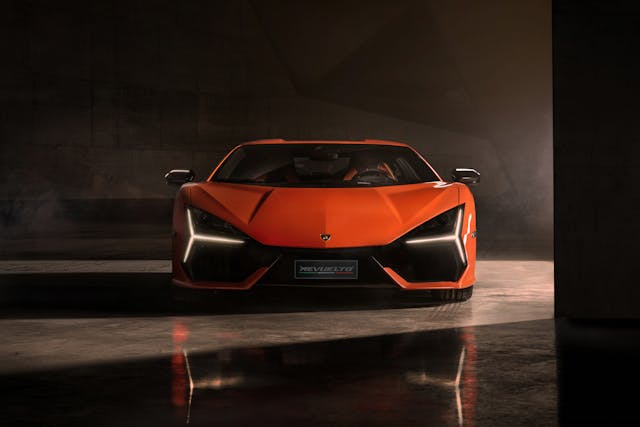
Feedback received from Aventador owners significantly shaped the updates Lamborghini made to the interior. Customers wanted more space, and Lamborghini delivered. The wheelbase is approximately three inches longer and has a roofline that’s a little less than an inch taller to permit more head and leg room. It also makes space for a shelf behind the seats that’s suitable for carrying small bags.

Even a car whose main selling point is a massive V-12 needs a state-of-the-art user interface in 2023, so the Revuelto is equipped with a 12.3-inch digital instrument cluster, an 8.4-inch touchscreen for the infotainment system, and a 9.1-inch display embedded into the part of the dashboard that’s directly in front of the passenger. The passenger-side screen can be configured to show the same information as the instrument cluster. Alternatively, passengers can move content from the central touchscreen to the passenger’s screen with a swiping motion. Lamborghini argues this allows the driver to stay focused on the road.
Made in Sant’Agata Bolognese, in the same factory that has built every Lamborghini model since 1963, the 2024 Revuelto will go on sale in the coming months. Pricing information will be announced closer to its on-sale date, though it’s reasonable to assume that it will cost more than outgoing the Aventador, whose MSRP started at roughly $500,000 for the 2023 model year.
***
Check out the Hagerty Media homepage so you don’t miss a single story, or better yet, bookmark it. To get our best stories delivered right to your inbox, subscribe to our newsletters.
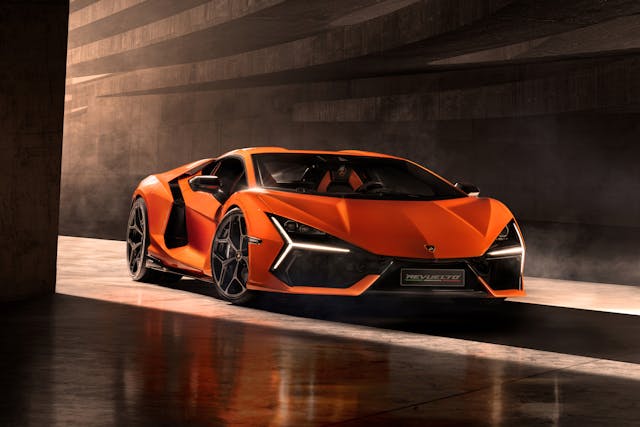
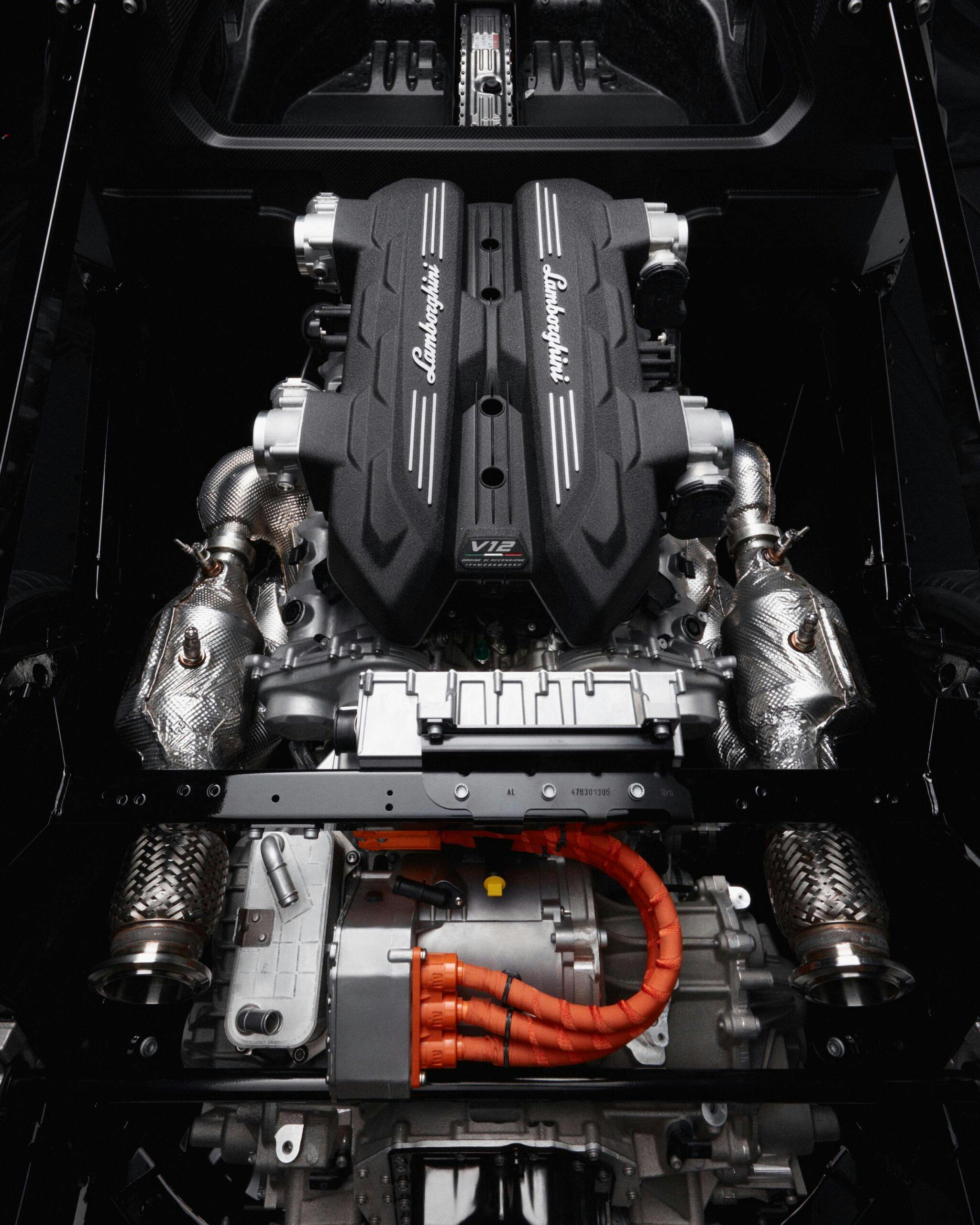
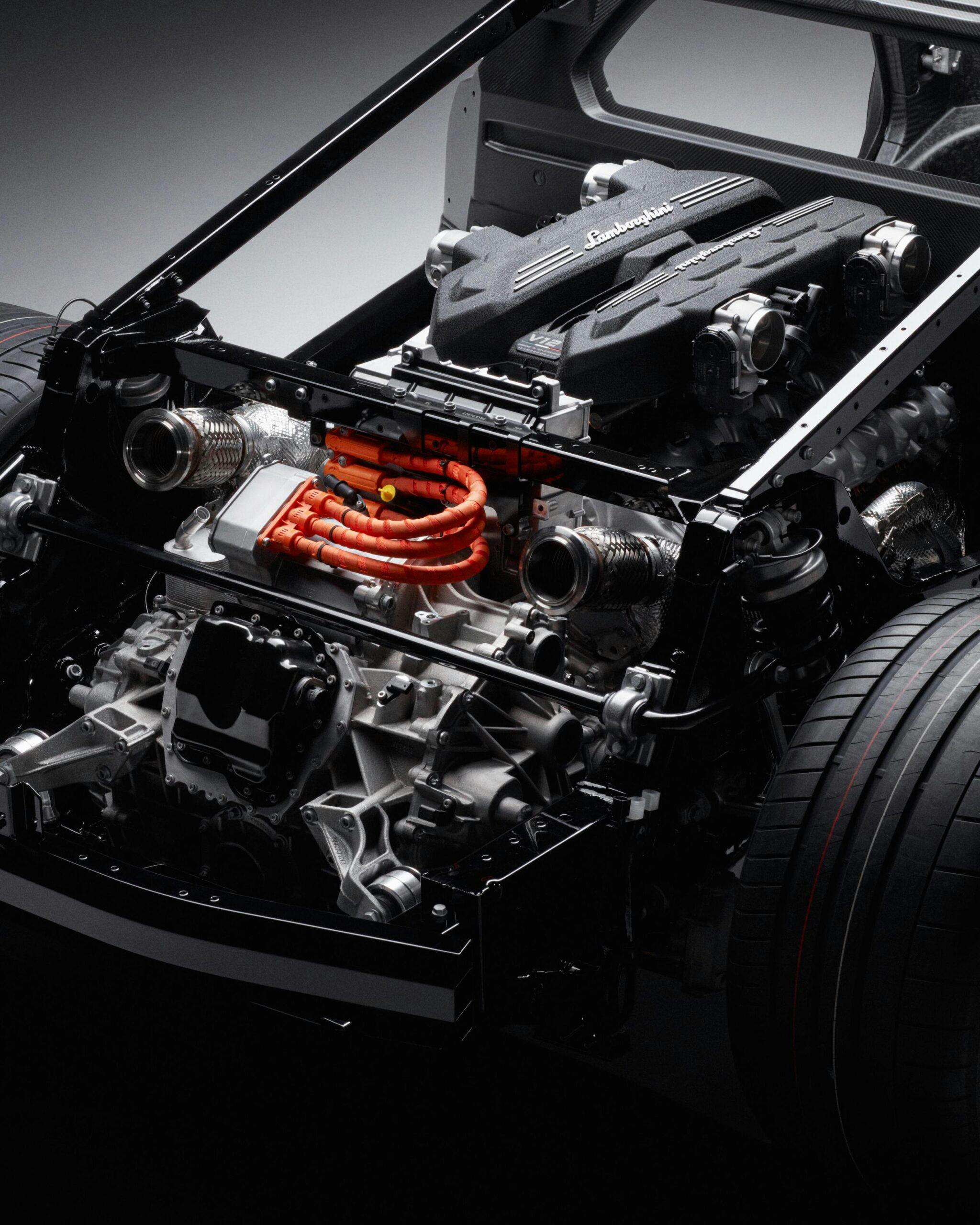
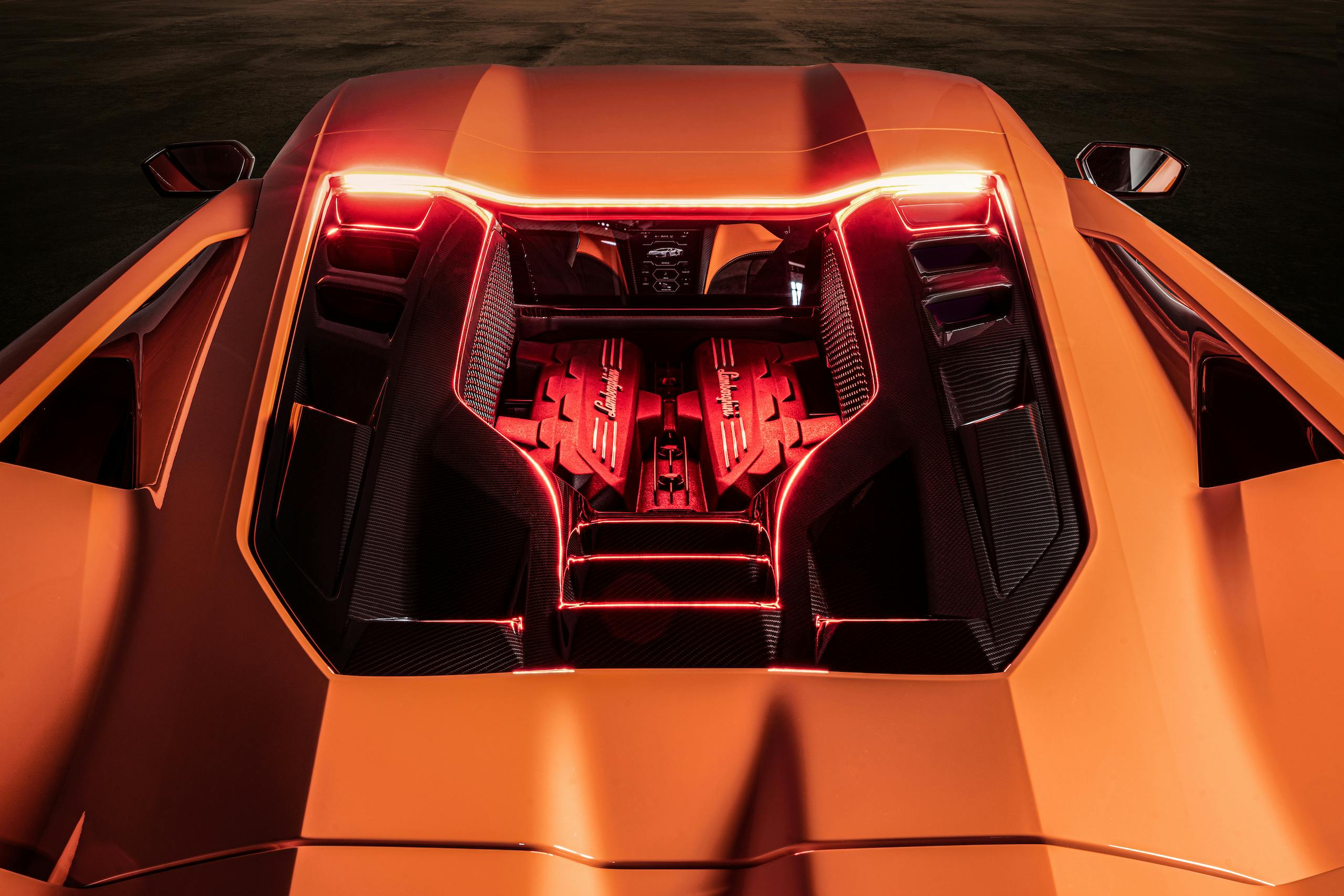

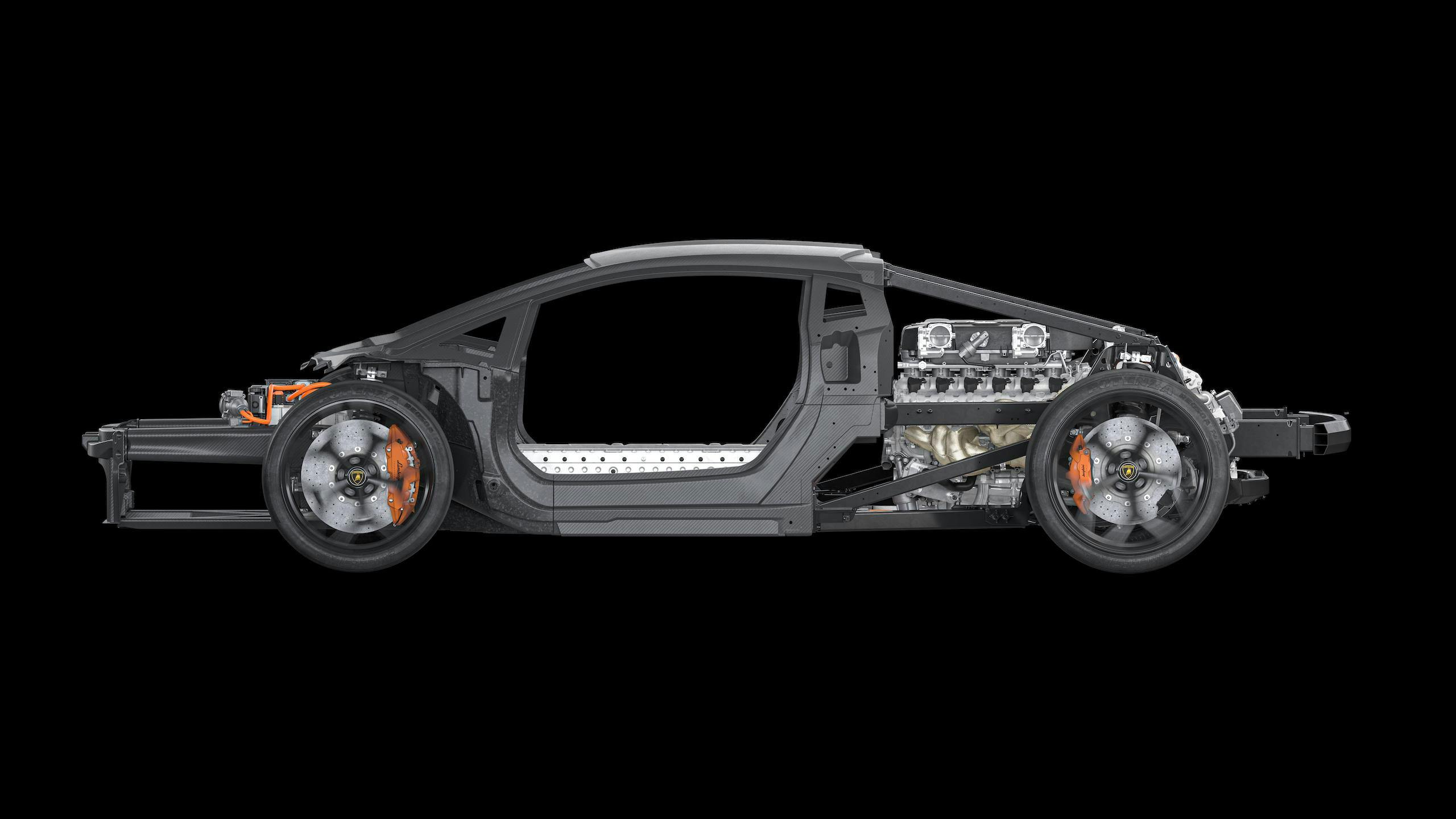
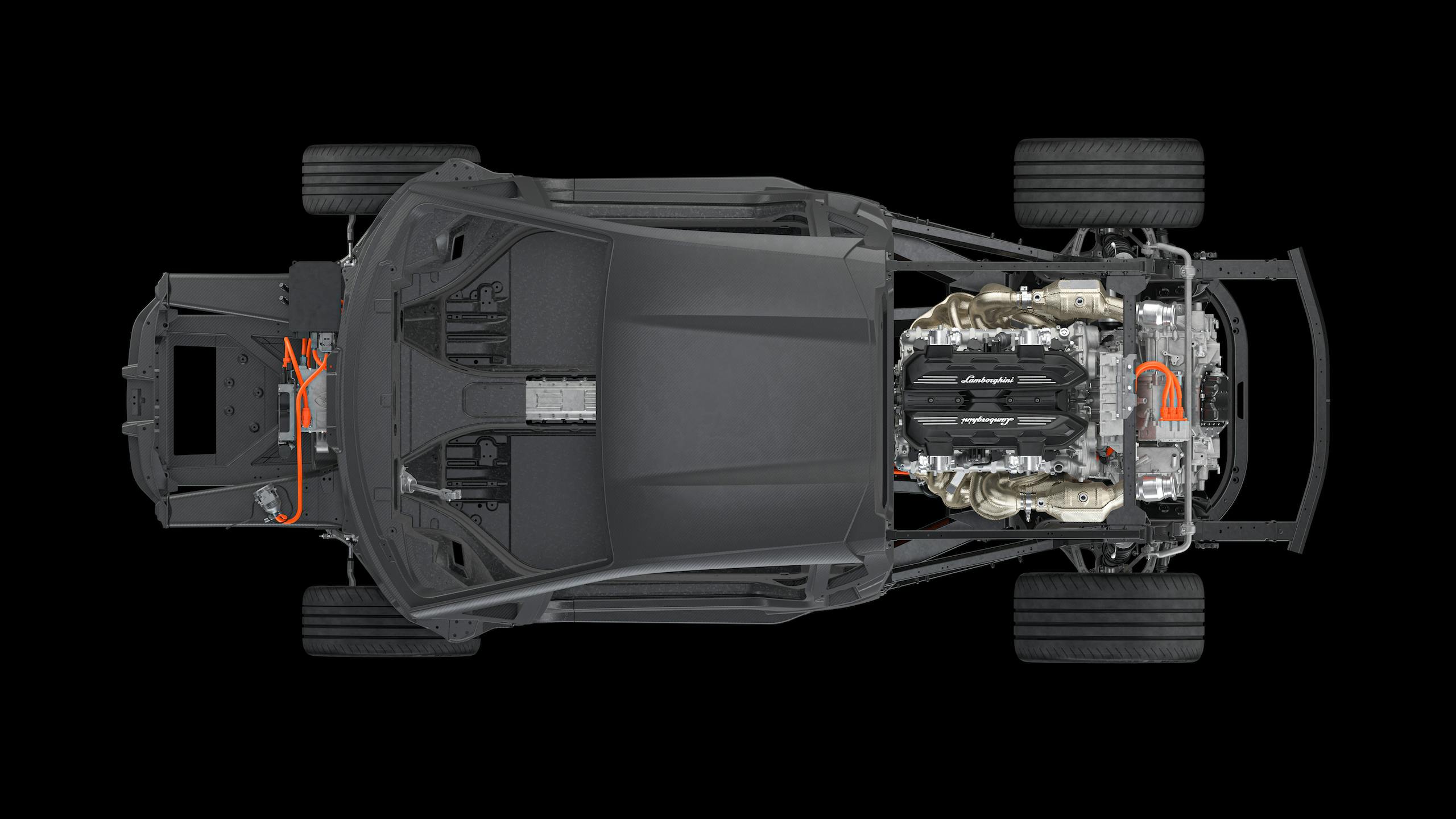
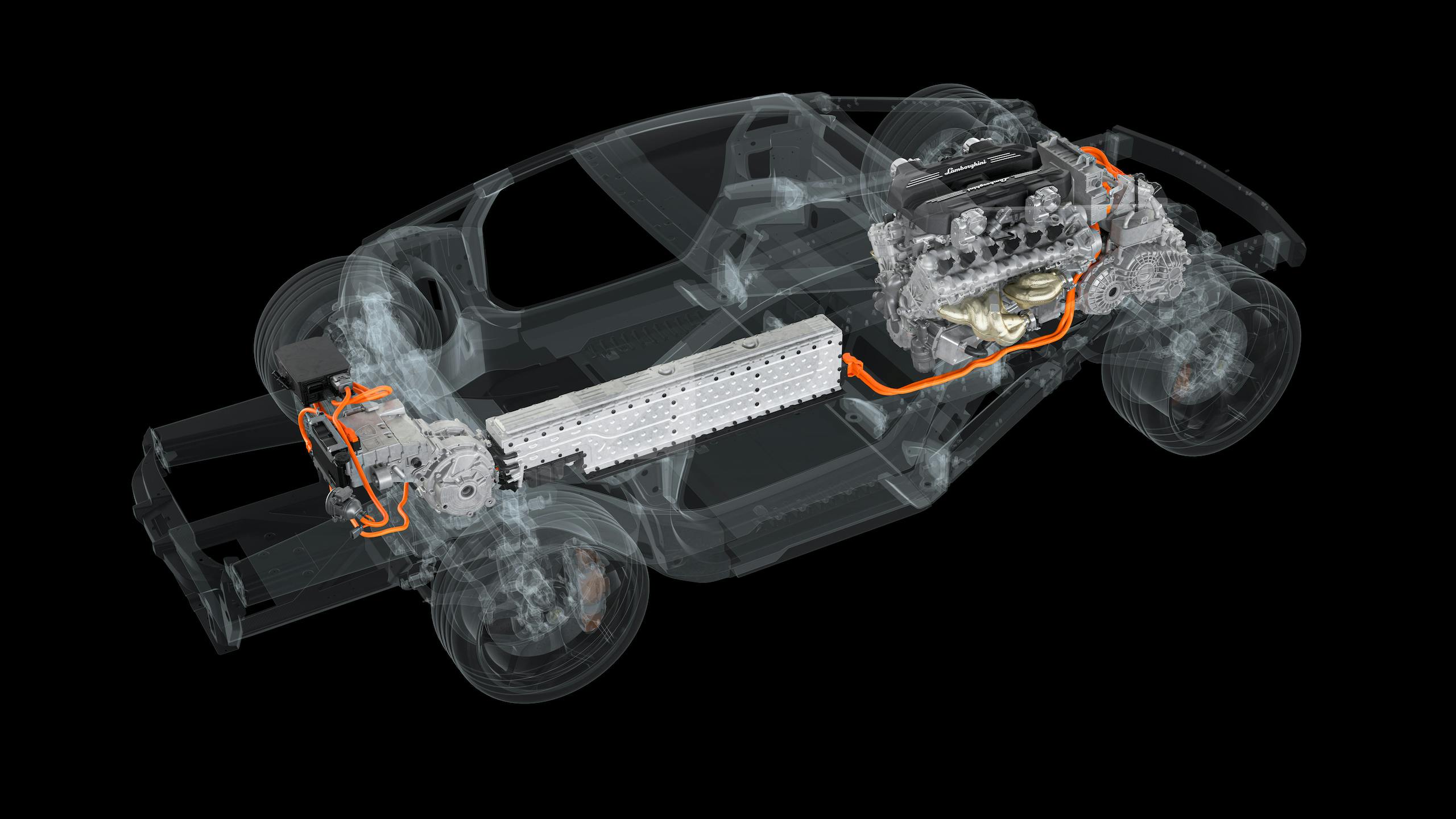
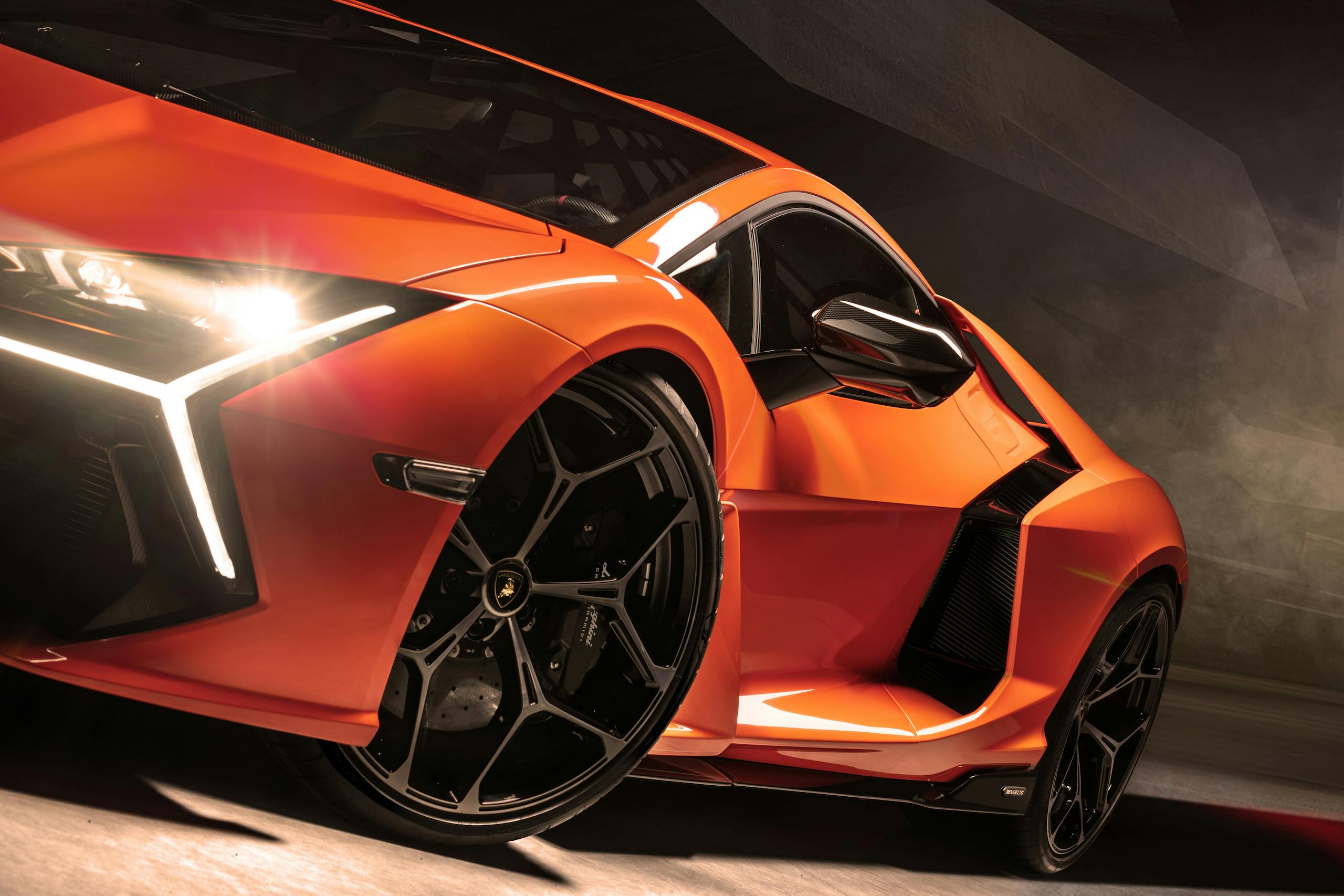
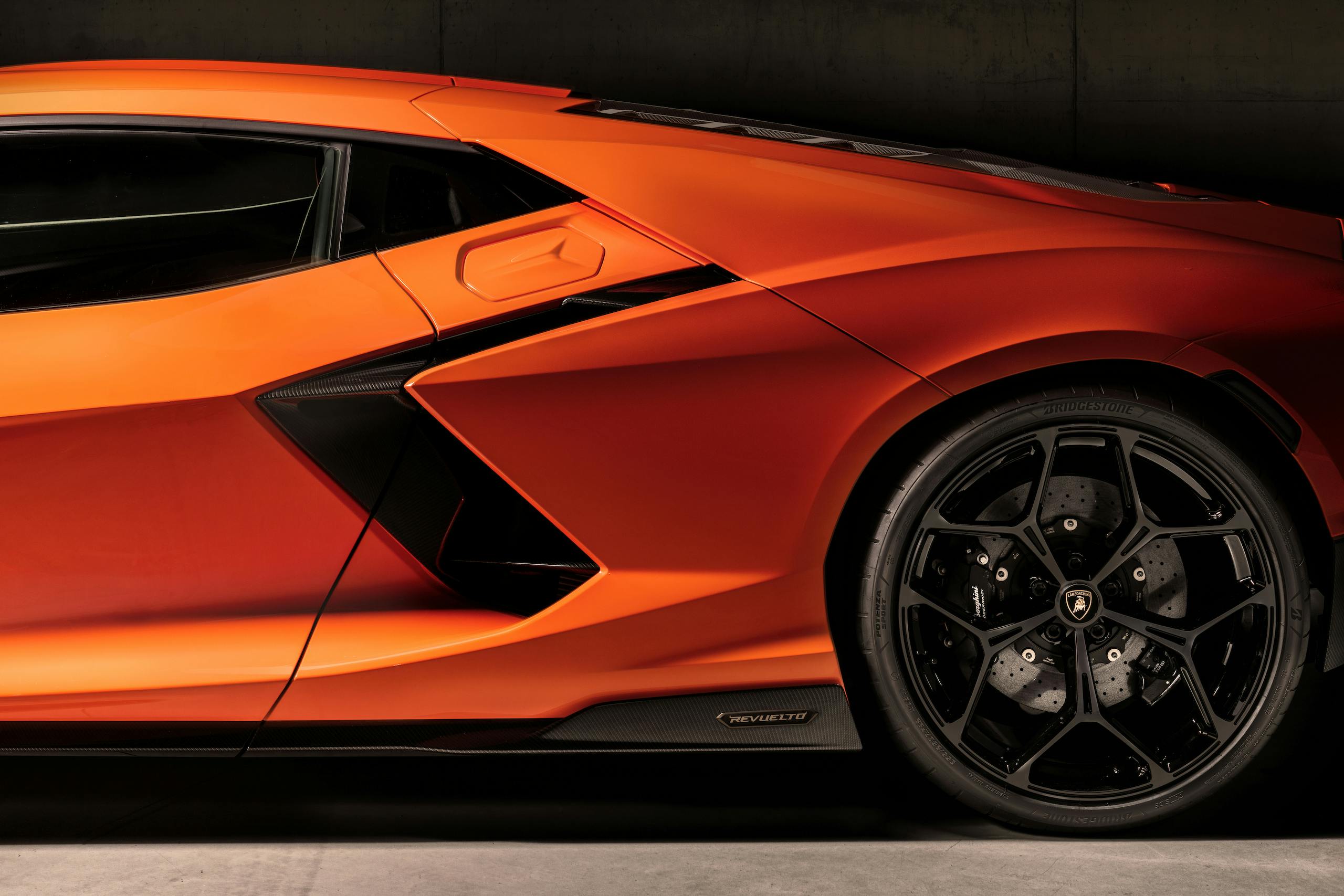
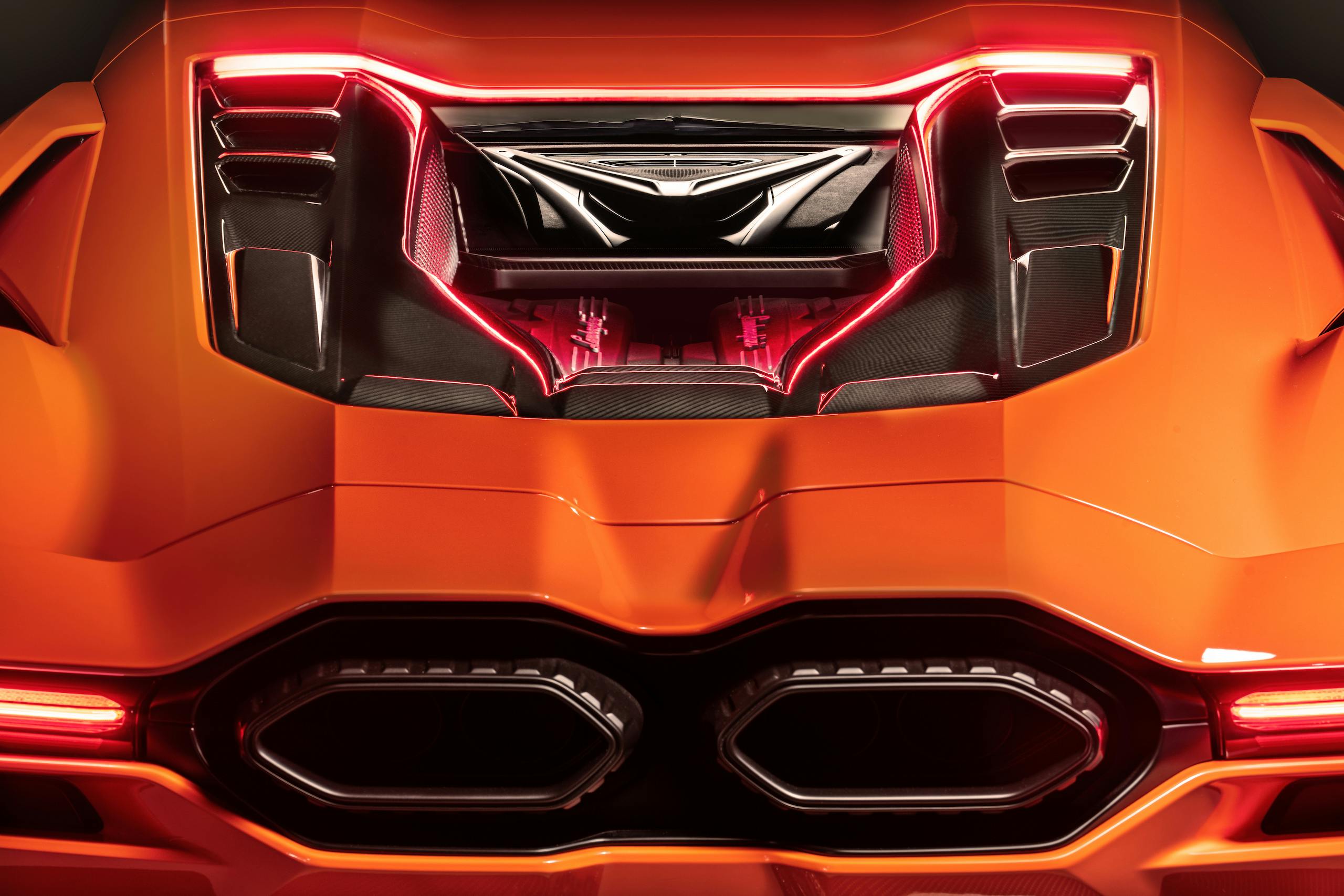

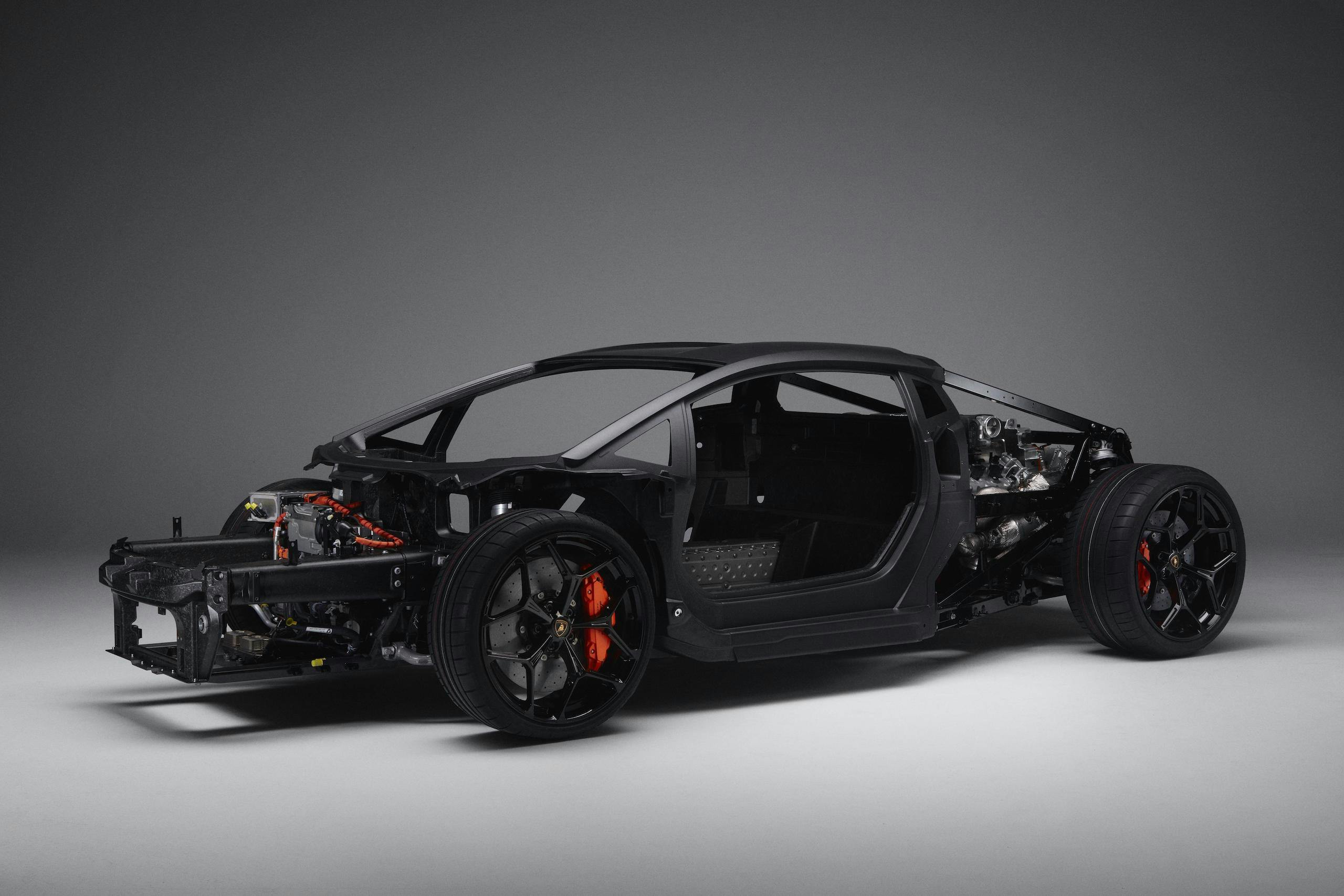
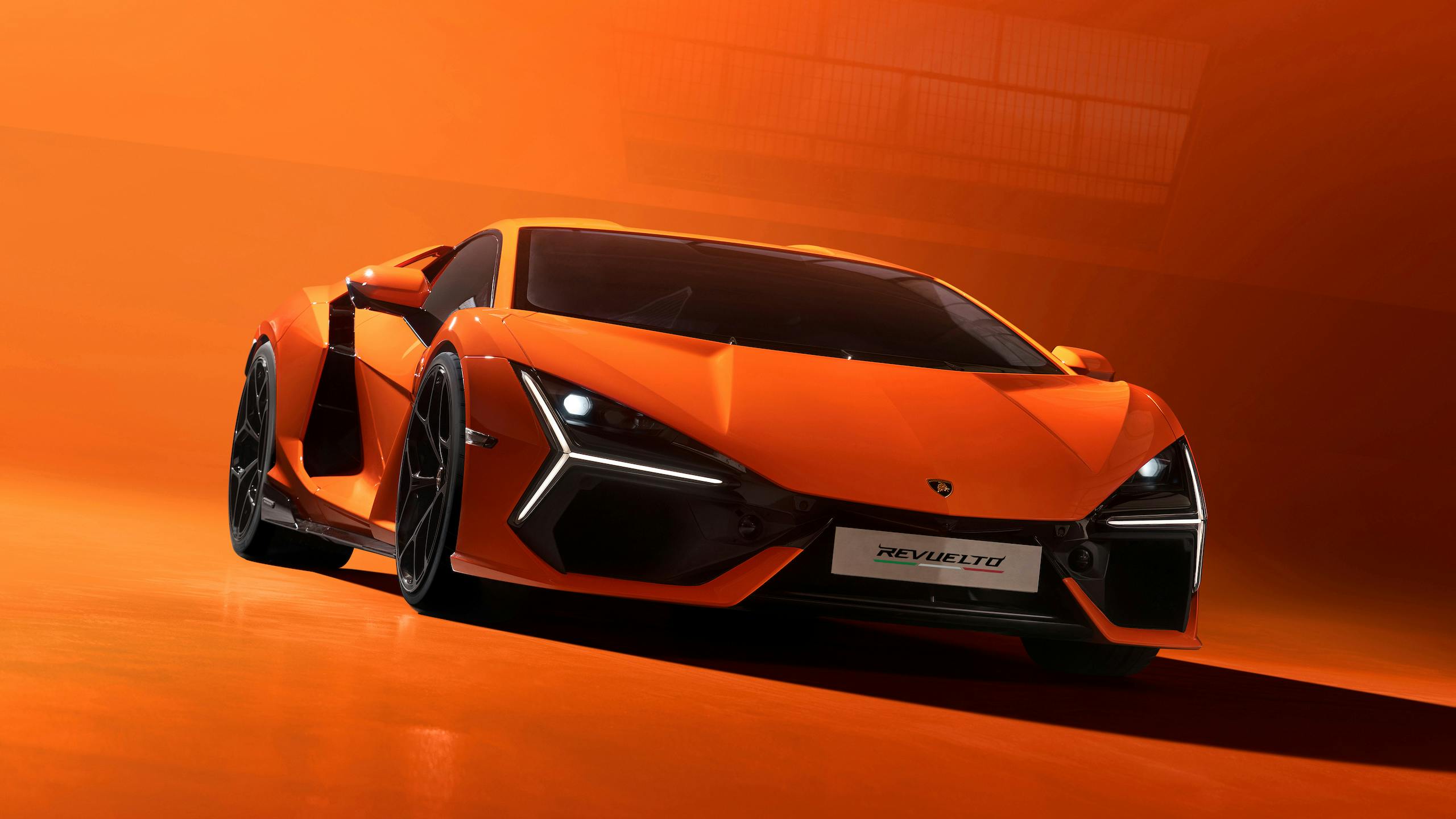
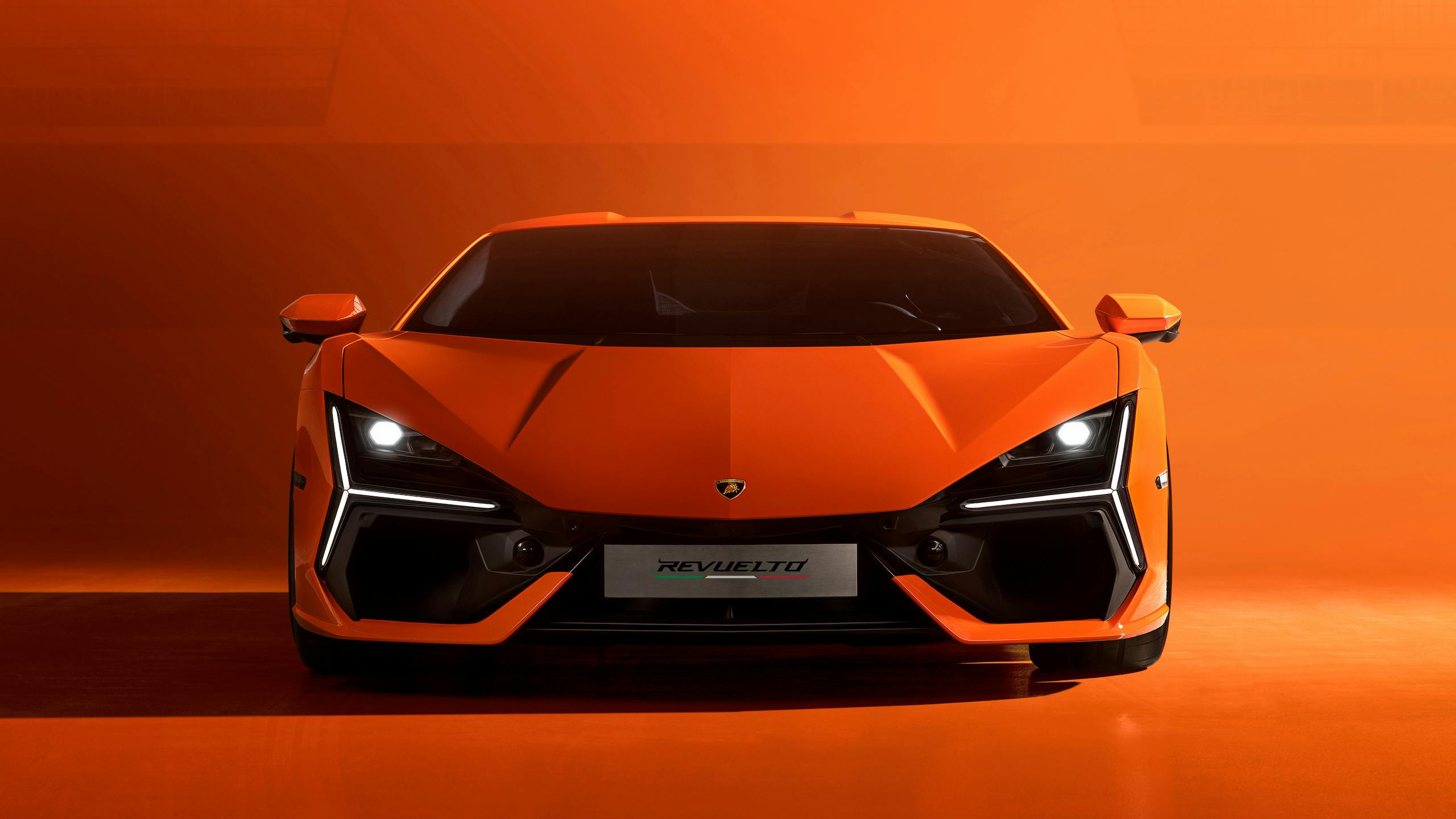
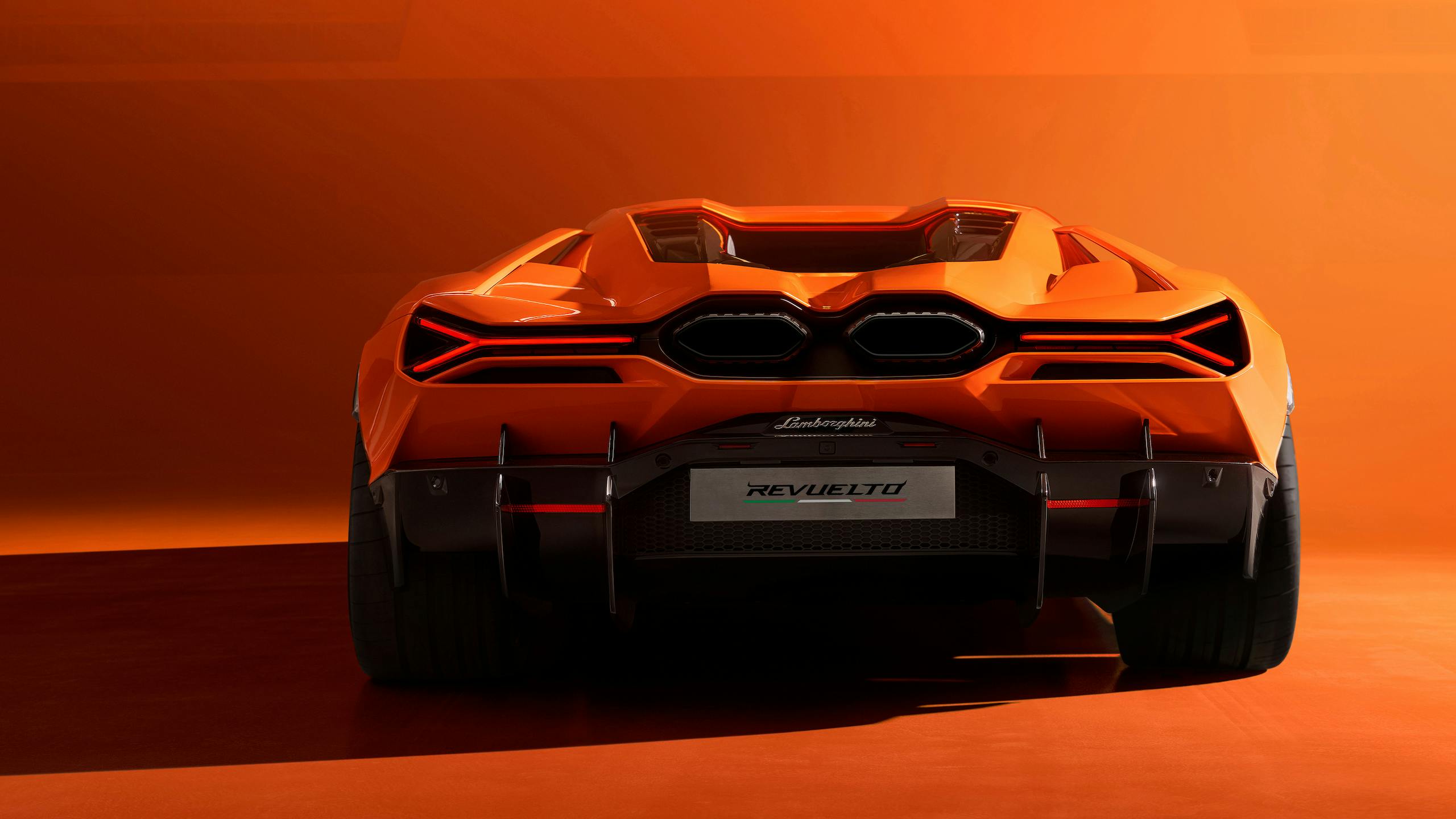
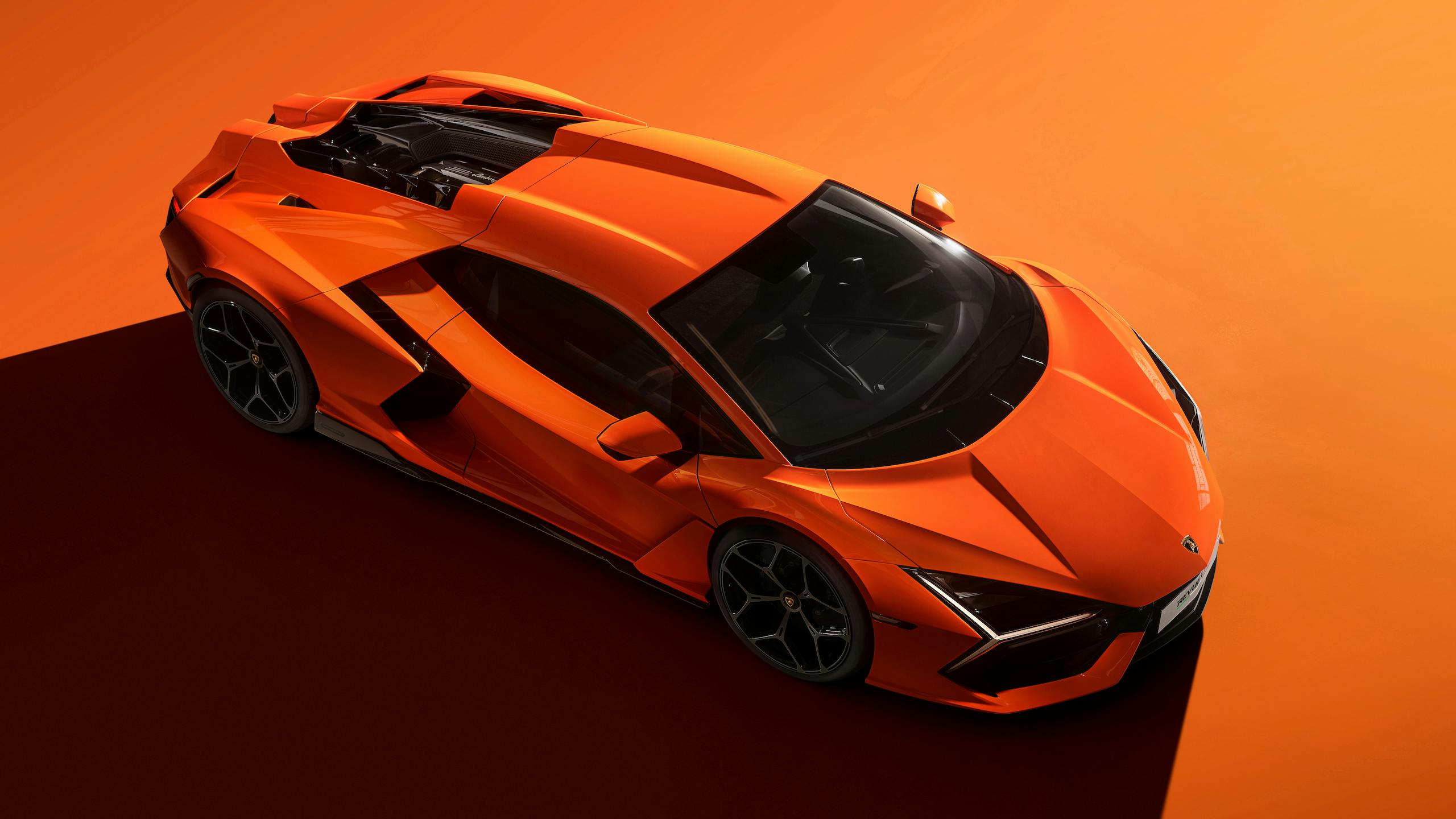
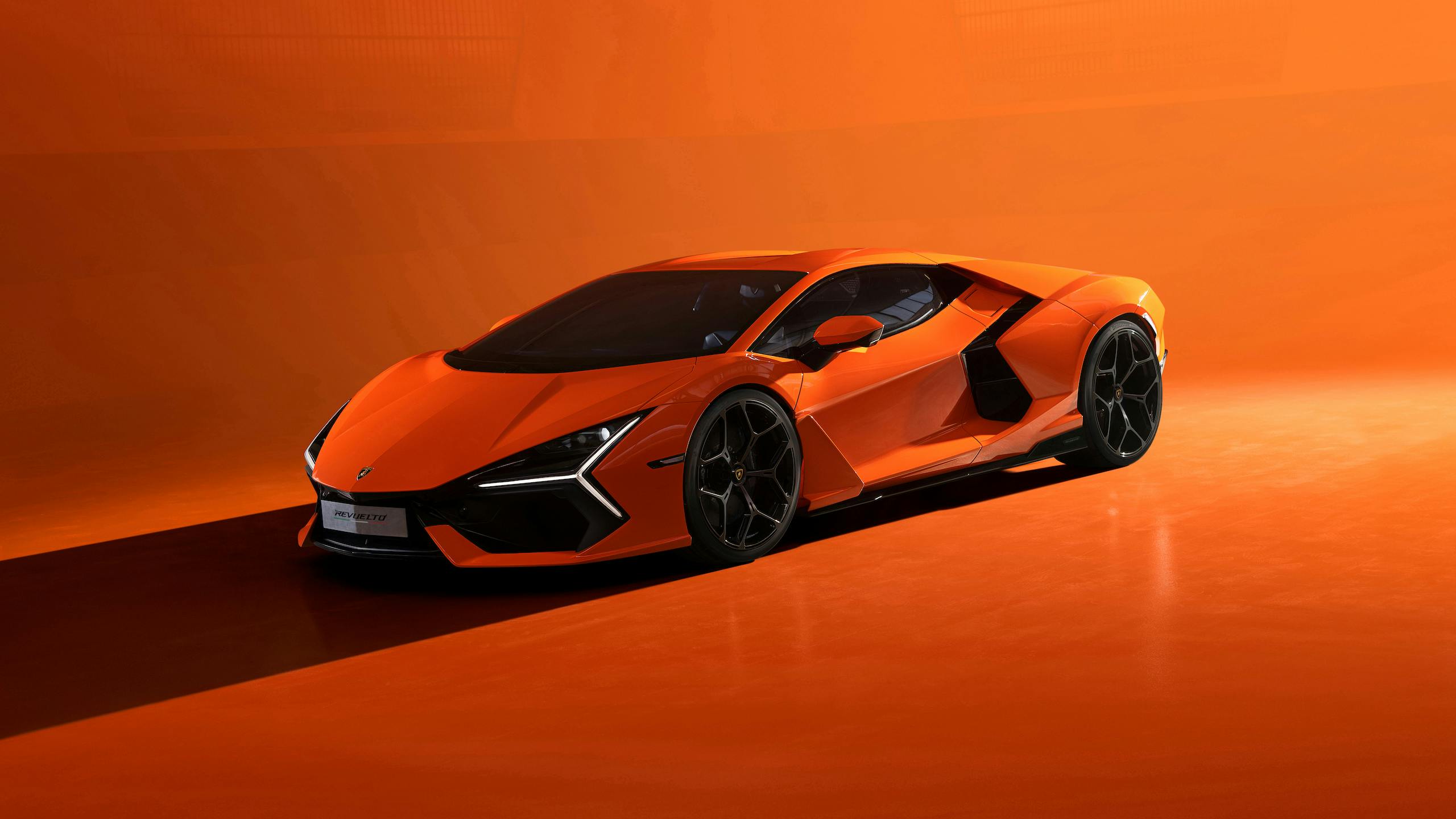
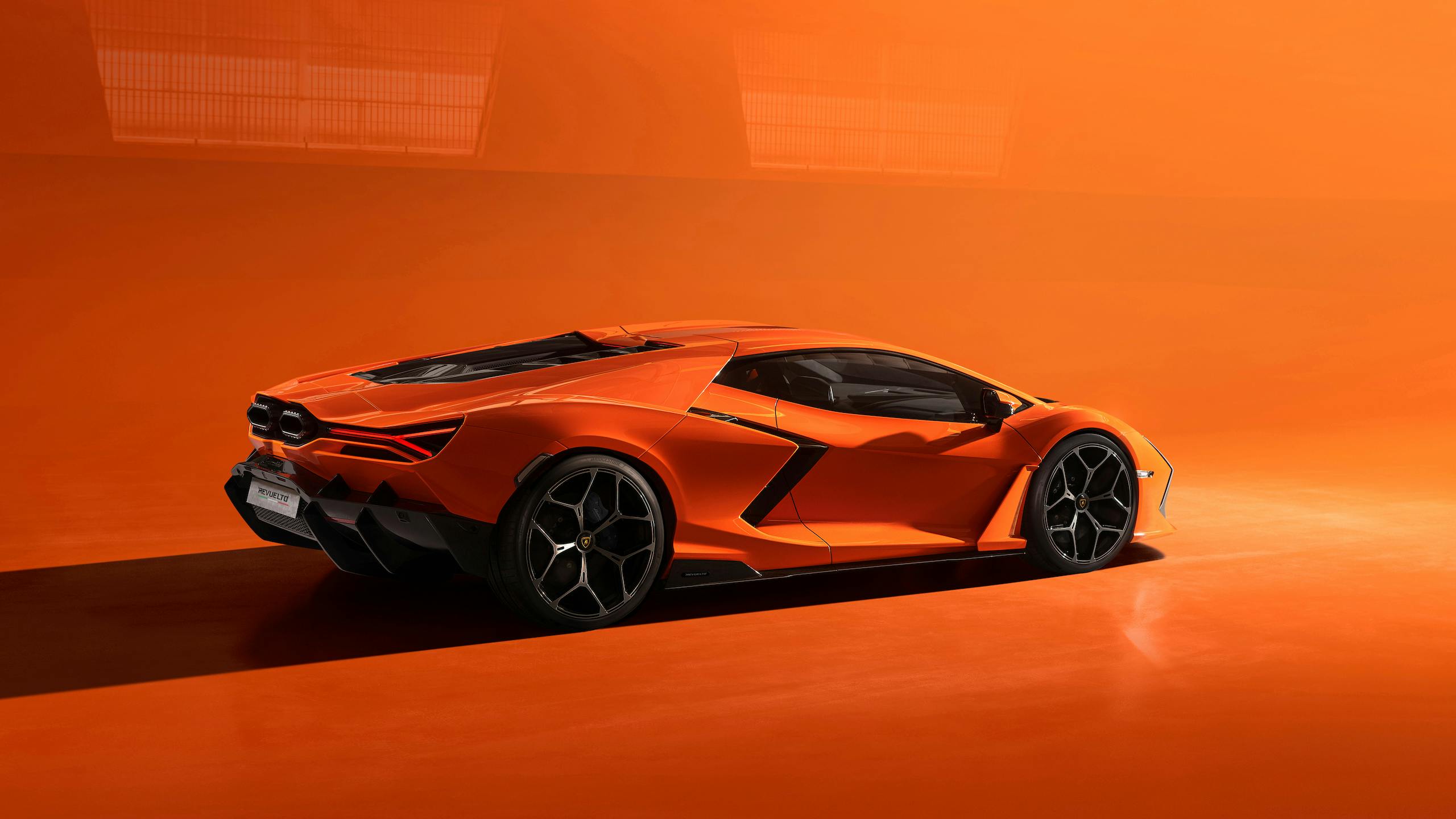




It looks good and the V12 still lives but I don’t get the plug-in hybrid part. Is plug-in hybrid better than no plug hybrid? It seems a waste of time to plug something in that has such little range. I’d rather have it be a hybrid without the stupid plug but I’m not buying one so who cares I guess.
Pretty wicked looking car. Remake the Countach!